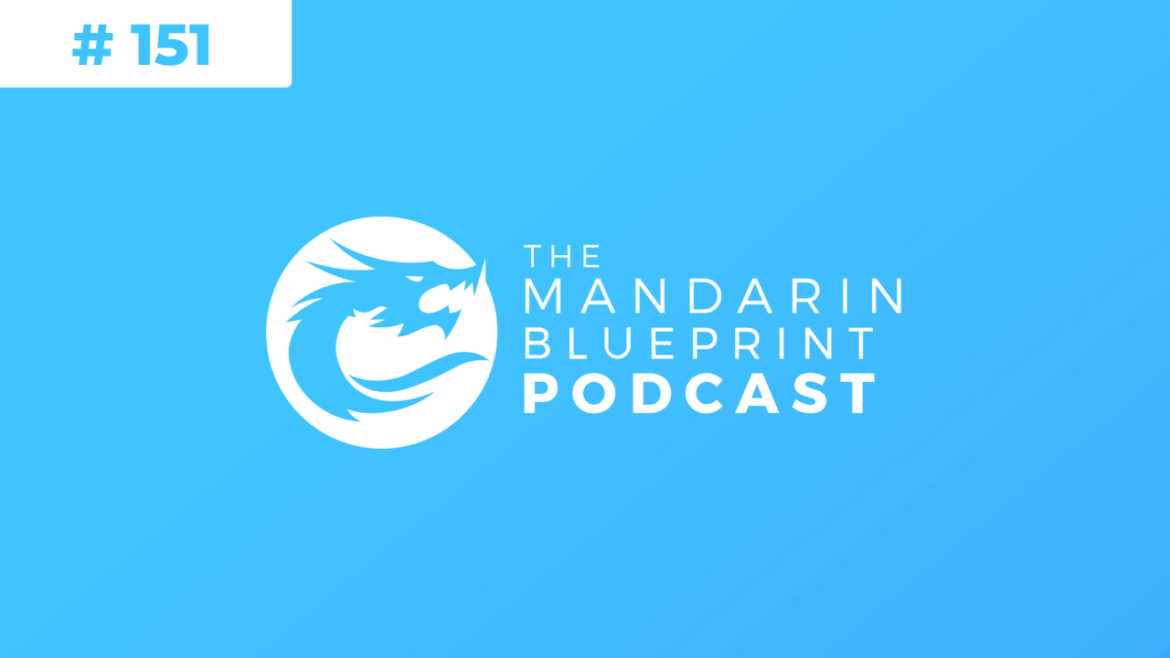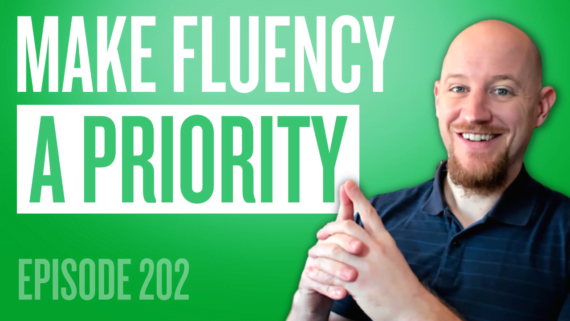
151. Chinese Characters Are the Most Important
欢迎光临! Welcome!
You can now subscribe to the podcast by the links below, or you can subscribe by copying the following URL into your favorite podcast APP.
The Mandarin Blueprint Podcast focuses primarily on The Blueprint online curriculum. Creators Luke Neale & Phil Crimmins answer questions and comments, discuss topics related to China and Mandarin learning, and have special guests.
Want to learn how to speak fluent Chinese fast? Join our free Webinar right here.
欢迎光临! Welcome!
You can now subscribe to the podcast on iTunes, Stitcher, Spotify, or you can subscribe by copying the following URL into your favorite podcast APP:
https://www.mandarinblueprint.com/feed/podcast/
The Mandarin Blueprint Podcast focuses primarily on The Mandarin Blueprint Method online curriculum. Creators Luke Neale & Phil Crimmins answer questions and comments, discuss topics related to China and Mandarin learning, and have special guests.
0:00 Affiliate Link & Reviews
Become a Mandarin Blueprint Affiliate
Leave us a Google Business Review 🙂
10:35 Comments & Emails
Chris Lewis on Make a Movie 者
Just wanted to make two points here, that I think separates this course from any that I’ve ever taken online over the years and a fantastic model:
1) Your team is incredibly organised both mentally and technologically to save links/bookmarks to all that is re-asked. You must get the same questions over and over again, as people move through the course. With what I can see, with ease, you are quickly able to answer our questions, with patience and kindness.
2) I love hearing my name in the podcasts! That is special for me. Although our Mandarin is not as good as yours, yet, it shows the willingness and courage to include our comments and hopefully help others to further their creativity. I know I gain from others’ comments and sometimes I just can’t think of a Living Link. It’s one of the best business models I’ve seen. You guys are very humble, another great strength!
14:24
Annette by Email
Hello Phil, Luke,
I just bought the life-long membership as this is the best bang for the buck. I do clearly see that compared to the other offers and having seen what else is out there online and the costs and knowing you are working on getting courses to the highest proficiency levels too. Where there is a will there is a way and I decided to find the money. I figure, if this is what I can enjoy doing for years to come and eventually use when visiting China, then it justifies dipping into my personal savings to make retirement so much better and something additional to the RVing to look forward to. I have chosen to look at it as an investment in securing an interesting retirement. Scientists say to keep the mind active and learning a new language is one of the ways to do so. I am excited to deep-dive into this project.
I have been using the free trial and was blown away at the thoroughness of your lessons, right down to having the Anki cards set up to meticulously follow the videos. You really do make it easy for students. I did the pronunciation course first, makes sense to do it up front, same for when I learned French, Italian and Russian so no surprise it’s what you do first. These pronunciation cards will be something I will go back to over and over again. Pronunciation is not learned overnight. My biggest issue listening is the qi versus ji, but I found in many, not all, cases the qi has a longer, more buzzing sound and I was finally able to hear the nasal sounds in the –ing, -ong words that I couldn’t in the videos. Had to laugh at hearing the bird initiating the fourth tone in 地图.
One side-note on pronunciation: Growing up bilingual with Danish and German (lived in Denmark, but spoke German at home and when visiting family in Germany) I went to the German school in Copenhagen. It never occurred to me that certain consonants and vowels were difficult to pronounce until I went to a regular Danish high school (the German school at the time did not have a high school). There I witnessed my fellow classmates having such a hard time in German lessons with the open a, Danish uses a closed a or a mishmash of closed and open, the ability to pronounce sh sounds (in German sch) and a sharp z (German words like Zeitung (newspaper)). That was my first eye-opener to appreciate the adage that the more languages you know, the easier it is to learn another one which is true. Russian has a variety of s to z sounds and I find I hear that with Chinese too. I wondered why you were referring to “problem” sounds in the videos and realized after watching most of them that you refer to strictly unilingual English speakers. Perhaps labelling them as “problems” might set some people up to look at things as really difficult rather than if it were a “challenge” if you ever revise the videos. I have the impression you have members from all over the world speaking a multitude of languages.
I am working my way through the first lessons, trying to follow the imaginary you suggest although tweaking them a bit because I do not like gory, as in the razor blade or syringe (too many traumatic memories related to my health) and was happy to have found the comments/podcasts that deal with people who have varying degrees of difficulty imagining the visuals. It’s the details that give me a bit of an issue. I have some trouble seeing the facial expressions. I try to exaggerate the movements of the actor to express the emotions instead. I just have to work at it and am encouraged having read/listened to the comments/podcasts. Also the podcast with Rebecca Wheble where she said she had started with Duolingo gives me encouragement as this is how I started too, but got a little tired of the repetitiveness and restrictive, sometimes awkward, English translations you have to put in, not to mention the same sentences over and over and over. I look forward to getting to a level where I can read the Chairman’s Bao, being a bit of a news junkie. I would also like it if your company gets an agreement with Du Chinese as you talk about in a podcast or a comment. I have looked around that website too. I will be aiming for the ultimate goal of watching tv shows without caption and the ability to communicate my thoughts freely in Chinese and understand responses.
Looking forward to years of fun,
Annette Bicknell
22:53
Anne Giles on MAKE A MOVIE 提
Asked a teacher for help with both meanings. How’s this?
我想提到你提着的公文包。
Wǒ xiǎng tí dào nǐ tí zhe de gōngwén bāo.
I want to bring up the briefcase you are carrying.
24:58
Annette Bicknell on MAKE A MOVIE 午
Would this work? I previously had the plus as a “giant plus sign”, but I hear that you can adjust it somewhat to fit the movie. I am still trying to figure out the movies. In this case the famous scene from High Noon is the template:
Worf from Star Trek sees the loser Donald Duck entering the living room of my childhood home carrying an item shaped like a metal plus. Donald Duck has a temper and immediately challenges Worf to a duel. Worf thinks this is ridiculous. He reluctantly agrees to the High Noon challenge saying he will only use his bat’leth against Donald Duck’s metal plus. Metal against metal. The clock starts ticking towards noon. No sooner has the clock chimed noon and Donald Duck finds himself balancing on top of the metal plus having been defeated by Worf.
28:09
Jeff Johnson on Make a Movie 王
This was a fun one for me. I chose to have the scene be a king’s coronation. Further as a special guest I have a friend named Wang. His driving is infamous among our friend group (seriously don’t get in his car.) So it not only made sense with his name but it gave an extra reason for the crowd to cheer extra loud at the end. (Kings do not drive themselves after all.)
29:07
Chris Jensen on MAKE A MOVIE 飞
When doing my Anki I realized I didn’t recognize the icicle component of this character. It looks quite different. I’m sure I’ll remember going forward but I found it a bit odd.
30:33
Paulette J on New Vocabulary Unlocked! 认识
I speak French, and it uses different verbs for knowing information versus knowing a person, so it was helpful for me to mentally link 认识 to the verb connaître. I think Spanish has the same verb distinction.
31:37
bubu on Level 13 Complete
Oh finally, I am able to complete L13! It was super awesome that I could read out all the sentences and understand everyone of them! I am just thrilled and excited to move on. Thank you Phil and Luke for your awesome teaching and guidance. Don’t know how I could have gone this far without you.
32:17
Casie Moen on New Vocabulary Unlocked! 今年
I have intermediate level Korean literacy, and so the first thing that pops out at me when I consider these two characters is related Korean sounds and words. Jin is one way to say “real” or “true” in Korean, and then one of the Korean words for year is derived from the exact same character as the Mandarin, but is pronounced nyeon rather than nian. So, the only “real year” we have is the current one we’re in, the rest are just fictions of the past or present — a mnemonic for the Mandarin by way of Korean 🙂
33:58
Chris Park on Simple Final U (WU): 不 bù,我不渴 wǒ bù kě,我饿了 wǒ è le
Thanks for (a) asking the questions and (b) answering them. I had exactly the same questions and pleased to find the answers already posted. Great course and great feedback.
34:36
Karma Senge on MAKE A MOVIE 人
Do you think I need to make a movie really about this character if I have known the meaning and pronunciation for years? I did all the rest, Scene, props, actor, etc. so I have that stuff payed out for future characters. But I really don’t think I need a movie for this one.
35:33
Casie Moen on New Vocabulary Unlocked! 说话 – 电话
It is really fun to notice the similarity between Korean and Mandarin in some of these initial vocab words. The Korean for a phone or a telephone call is pronounced jeon-hwa, where jeongi means electricity in Korean (so different sound in the Mandarin, but same morpheme meaning) and the hwa deriving from the same Chinese character, 话, and having a very similar pronunciation as the Mandarin. Fun to piece some of these things together, and very useful for mnemonics as I learn the Mandarin!
36:53
Chris Lewis on 拍照 in Context
In this sentence, I suggest combining your and self into one word. Taking a picture of your self is called “自拍” in Chinese & “selfie” in English.
37:13
Chris Lewis on 照相机 in Context
I cannot remember how many lessons ago it was said but we were told, again, that we will notice when a character (一台) is a measure word and not some random character. Your lessons are sinking in! Of course, when I looked it up on pleco it said all of the following: for certain machinery/apparatus/instruments: a typewriter, computer, tractor, a stage performance, a modern drama, and a song and dance. interesting combination of things!
39:22
Robert on 长得 in Context
Hi Luke, Thanks for that real life use and description about 长得. At this stage (Phase 4 beginning) i’m starting to try and get the memory working better with words (HMM for characters, but now the challenge is WORDs). What I found here is that your description of real life use of the word gives a nice living picture of its use. I find it easier to write the “lived experience” into the anki deck when I have you explaining it like you did here:) Thanks – My feedback is I find that videos like this in the “vocab in context” format where you give your real China experience are excellent for getting the memory loaded into the brain :).
40:52
Rick Angleland on Vocab Unlocked from 跑: 跑步
and I found 跑步机 which is not a high-frequency word, but easy to learn!
41:17
Kairi Shikari on Vocab Unlocked from 礼
In what kind of situations would you use 礼拜天 rather than something like 星期日 or 周日?
42:11
Chris Lewis on 拍照 in Context
according to pleco these two things both look the same, is there much of a difference?
拍照、拍照片
43:11
George J on 自己 in Context
A quick question?
1. 我早上自己吃饭,下午和儿子吃饭。
2. 我早上一个人吃饭,下午和儿子吃饭。
Would sentence 2 also be correct? Would there be any difference in meaning or emphasis in this context? I’ve always seen 一个人 as meaning alone/by (my)self and 自己 as by (my)self/without anyone’s help. Is that about right?
44:29
Gavin Meakin on 女人 in Context
Following on from the thread above regarding “我是个好女人”, if omitting the 一 is common, what about omitting 一个 all together? Does the meaning change if I were to just say “我是好女人”?
45:45 Vocab Living Links
This section covers “Living Link” mnemonic techniques to remember Chinese words of two or more characters. Here’s a video explaining the theory behind it.
46:26
Hajna Detre McGrath on Vocab Unlocked from 回: 回来 – 回去
Back to the Future
46:57
Hajna Detre McGrath on Vocab Unlocked from 因: 因为
Wizard of Oz “BECAUSE the wonderful things he does”
47:20
Jason Pon on Vocab Unlocked from 意: 意思 – 介意 – 同意 – 有意思 – 没意思 – 不好意思 – 注意 – 做生意 – 意外
意外 google image search ‘unexpected pregnancy’ 注意到 picture of someone ‘noticing someone at a bar’. I landed on Ryan Gosling at the bar in Crazy Stupid Love!
48:21
Clare Murphy on Vocab Unlocked from 有: 有人 – 只有 – 没有 – 有点儿 – 还有 – 有的 – 有用
A teenager in the UK in the 80s – it has to be Yazoo and “Only you” (or The Flying Pickets version!)
49:02
George J has on Vocab Unlocked from 几: 几个 – 十几 – 几百 – 几千
[几个] – “These are A FEW of my favourite things” Julie Andrews “Sound of Music”
50:29
George J on Vocab Unlocked from 机: 手机 – 飞机
“Those Magnificent Men in their Flying Machines” movie
51:00
kym Thomas on Vocab Unlocked from 新: 新闻 – 最新 – 新年
最新 i chose a image of a concept car
52:14
kym Thomas on Vocab Unlocked from 亲: 母亲 – 父亲
母亲 I chose mother Teresa
父亲 i chose father time
52:32
Scott Wishart on Vocab Unlocked from 算: 总算 – 打算
swan song for finally
53:07
Gregory Savage on Vocab Unlocked from 饱: 吃饱
The Meaning of Life with the Fat Man overeating, saying I’m full, then vomiting till his guts spill all over the place. Ah, such treasured memories. Maybe you had to be there and 23 to appreciate it.
53:45
Chris Lewis on Vocab Unlocked from 单: 单身 – 简单
I can’t speak for others, but I love DANCING (单身) as a single. 简单, GEE ANN it’s so simple DAN is our man!
54:17
Robert on Vocab Unlocked from 定: 一定 – 决定 – 不一定
I like to visualize a Game show in progress. When the host reveals that the contestant is correct, you hear a “Ding” to confirm that they got it right.
54:46
Rick Angleland on Vocab Unlocked from 客: 客人 – 不客气
I think 客人 also covers what we would refer to in English as “customer” (at a restaurant), “diner” etc.
55:46
Rick Angleland on Vocab Unlocked from 路: 马路 – 走路 – 路上
Forrest Gump jogging 跑步 across the USA 路上 .
56:14
Curtiss Castonguay on Vocab Unlocked from 有: 有人 – 只有 – 没有 – 有点儿 – 还有 – 有的 – 有用
有人
For those that have seen the movie Ferris Bueller’s Day Off…the boring teacher in the classroom…
“Anyone, anyone…”
“Bueller, Bueller…”


